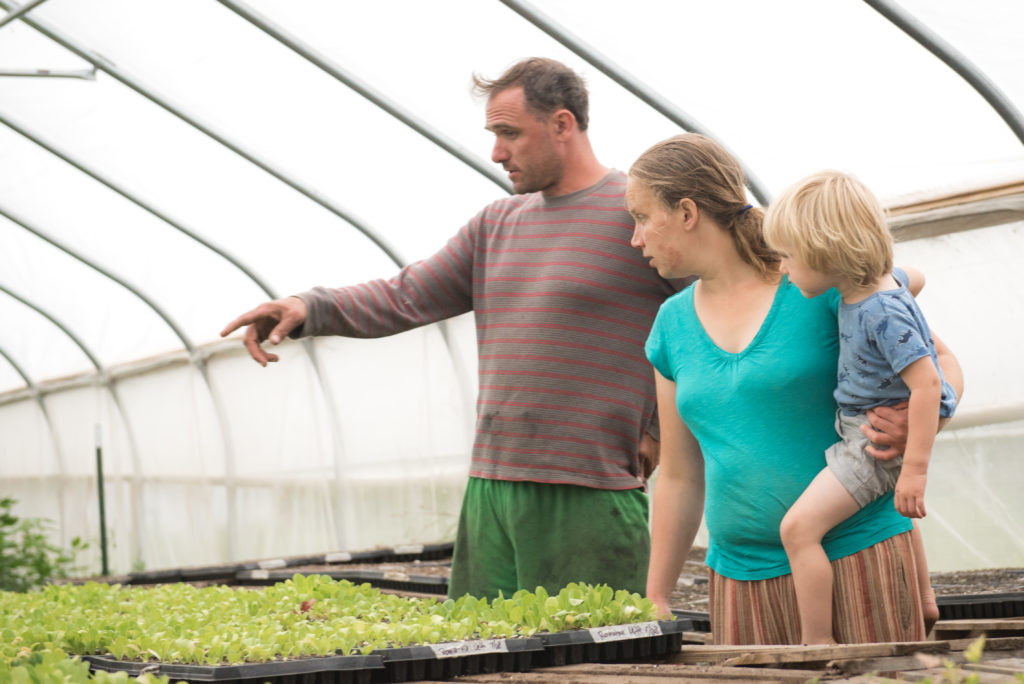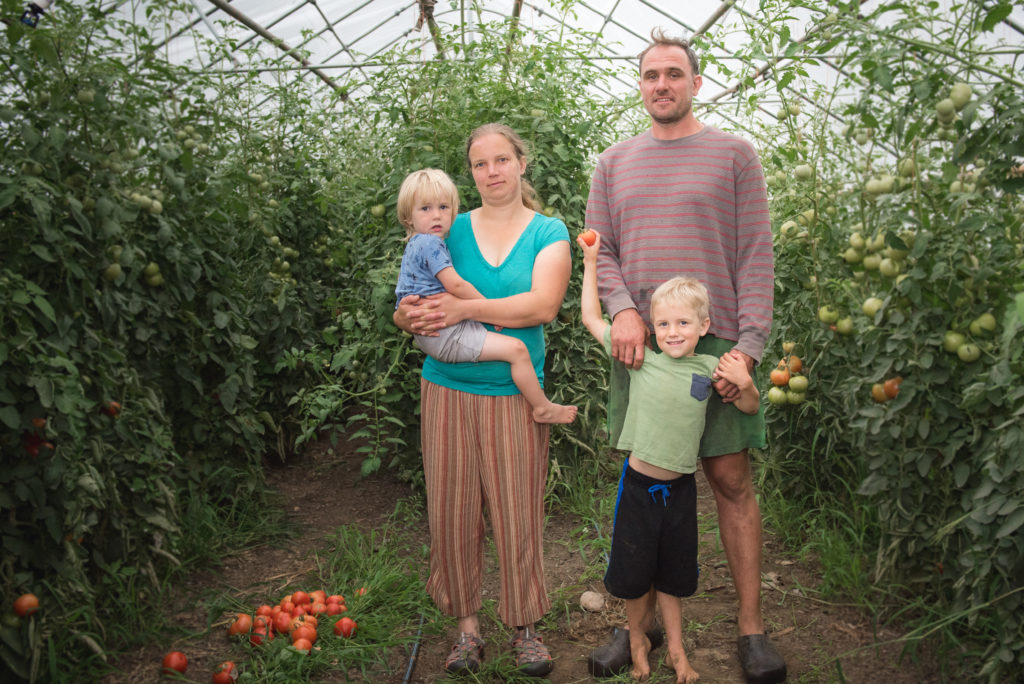Empowered by Efficiencies
How a consultant’s streamlining helped an organic farm tidy up its business (and its barn).
When Luke Mahoney and his wife, Catarina, took over a former sod farm in central New Hampshire five years ago, they were excited to restore the abused soil using biodynamic techniques.
There was so much potential: 300 acres of tillable Merrimack River valley soil for their highly diversified organic dairy, meat (beef, pork and poultry), and vegetable farm. Almost every farm nearby was a conventional dairy operation, so the Mahoneys knew that their Brookford Farm would offer the community something unique.

There were definite quirks though. The physical layout of the place was a mess. There didn’t seem to be enough barn space. And there was so much to manage, including the organic dairy and a bigger staff (and payroll) than they’d ever had before.
Furthermore, the Mahoneys, who had leased their previous farm near New Hampshire’s seacoast at what Luke called a “friendly rent,” were facing big debt. They had bought Brookford Farm in 2012 with a $900,000 loan from Stonyfield Farm founder Gary Hirshberg. Since then, they were achingly conscious of all they owed and all that needed to be spent to fix the inefficiencies around them. Such as 100 tillable acres that were taken over by nursery trees intended for landscaping but abandoned by the previous owners. “I felt overwhelmed every time I went there,” Mahoney said. “Talk about efficiency. Pay loan debt on a resource that we are only using a third of?”
Enter consultant Scott Morrison, an expert in lean principles developed from years in manufacturing. “Lean principles” is an approach inspired by Japanese auto manufacturers that identifies and eliminates wasted actions within an organization to increase profits. In recent years, it’s been applied to farming; there’s even a book called “The Lean Farm.”
Thanks to support from Fair Food Network’s Fair Food Fund program as well as the New Hampshire Community Loan Fund, Morrison was able to spend 18 months streamlining Brookford Farm’s operation and organizing its production flow into a smarter system. Connecting good food entrepreneurs with consultants for targeted one-on-one support is a core offering of Fair Food Fund.
“One of the things that was hurting them was, just like any business going through growing pains, you get to a point where in order to grow, you need to invest some time and effort into operational controls,” Morrison says.
That meant understanding exactly how much money went into raising, processing, and marketing a pig. Or a tomato. Especially on a farm where biodynamic principles are at play—the pig feeds the tomatoes and vice versa.
“Scott went in there and used his lean principles to say, ‘Yeah, I see lots of low-hanging fruit here,’” said Charlene Andersen, manager of business education for the Community Loan Fund.
An early focus was on the crowded barn they were using for vegetable processing and packing for its CSA, which stands for community supported agriculture, a popular way for consumers to buy local, seasonal food directly from area farmers. As Mahoney admits, “there was a lot of junk lying around.”
Morrison watched the workers. Then he got his own hands dirty. “He would go right out on the floor and help,” Mahoney says. Morrison sorted everything in the barn into three categories, with the highest priority going to items that got used not just every day, but every hour. Then he restructured where items, such as the folding conveyor belt, were kept. “We marked the floor with bright pink duct tape,” Morrison says. “Just to show them were to put everything.” Brookford ultimately didn’t need a second barn; it just needed to use the first more efficiently.
Morrison also developed better driving routes for deliveries to increase efficiencies, spreadsheets to clarify costs, and management tools for the dairy herd and milk production to allow cheesemakers to plan production three months ahead. “That has been super helpful,” Mahoney said.
Another key benefit was the way Morrison awakened a deeper understanding among the staff of 15 that time really is money, and not just to the owner but to them as well. “When the bottom line improves, then your life can improve,” Mahoney said. “That was a pretty important message that he got across effectively.”

With that message and the planning tools (even things as simple as employee handbooks that spell out daily duties) came a better partnership. Mahoney is directing his energies where his presence is most valuable, for example at the Boston-area farmers market, where sales increase when the farmer himself is on hand.
Perhaps the most powerful tool of all had less to do with data than drive. “He empowered certain key people,” Mahoney says of Morrison. “And gave them the opportunity to manage better and take some of that management off our plate.”
Take those 100 acres crowded with unsellable nursery trees, the ones that overwhelmed the farmer. Recently the staff pulled up the irrigation tape and brought in a logger to get rid of the trees so that come spring, there’s more space to grow food to feed a community eager for it.
Mary Pols is an award-winning journalist who covers sustainability issues for the Portland Press Herald in Maine.
Federal funding for Fair Food Fund Consulting Corps work was provided by Local Food Promotion Program of the Agricultural Marketing Service, U.S. Department of Agriculture.
Photos by Kate & Keith Photography, courtesy of NH Community Loan Fund.







